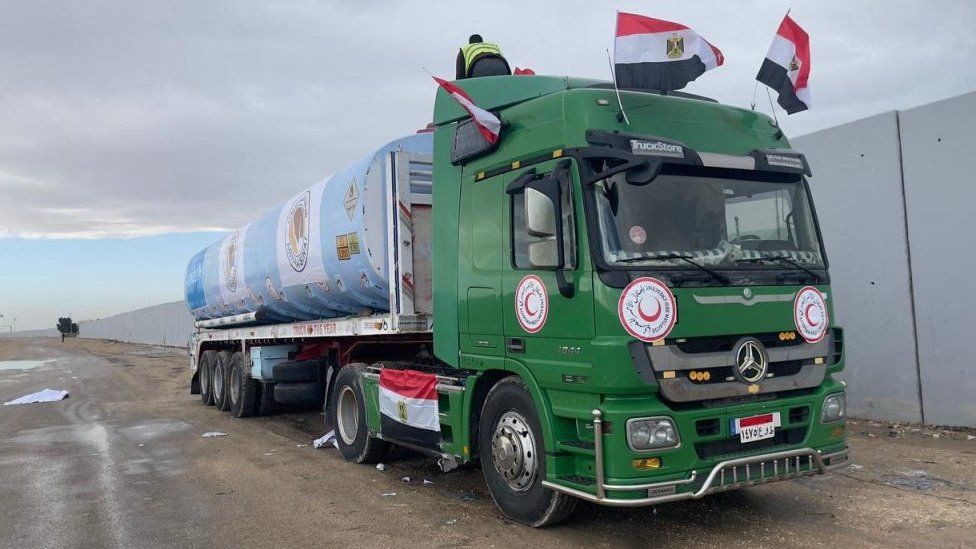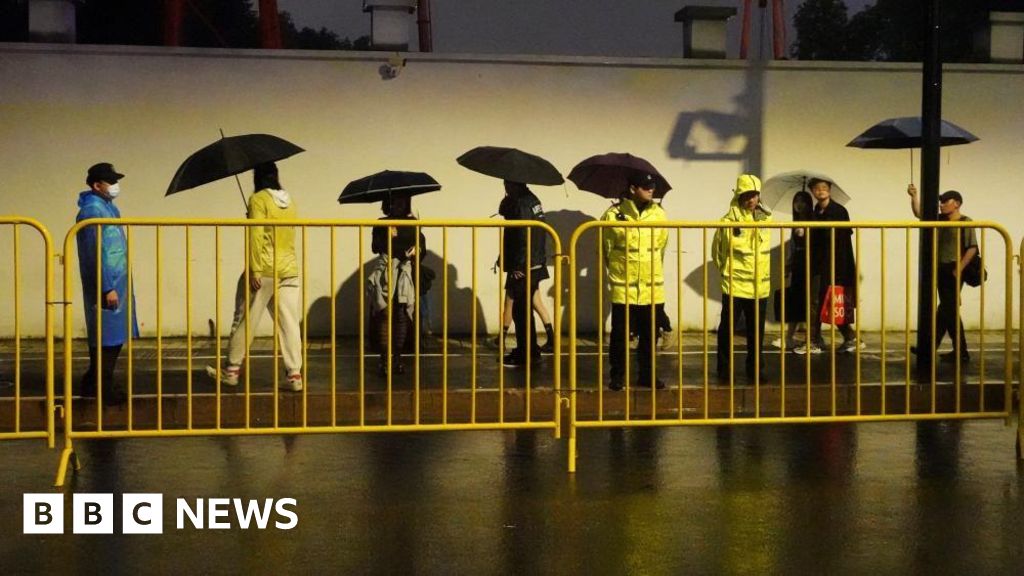ARTICLE AD BOX
 Image source, -
Image source, -
By Ali Abbas Ahmadi
BBC News
Israel says it will allow two fuel trucks a day to enter the Gaza Strip each day, after pressure to do so from the US.
A US State Department official says around 140,000 litres of fuel will be allowed in every two days.
Most of that is intended for trucks delivering aid, as well as supporting the UN in providing water and sanitation, the official said.
Around 20,000 litres every 48 hours is for mobile phone and internet services.
A lack of fuel had led to a communications blackout in the territory, but the company which provides Gaza's phone and internet services said on Friday that services had been partially restored after receiving some fuel via Unrwa, the UN's agency for Palestinian refugees.
The head of Unrwa warned on Thursday that the agency may have to suspend all of its activities due to the lack of fuel.
In its latest situation report, the agency said it requires "160,000 litres of fuel every day for basic humanitarian operations".
Earlier, an Israeli official said the new fuel allowance would be brought in through the Rafah crossing to the civilian population in the southern Gaza Strip via the UN, provided that it does not reach Hamas.
The Israeli official said the fuel would give "minimal" support to water, sewage and sanitation systems, in order to prevent the outbreak of epidemics that could spread in the area.
International organisations have repeatedly expressed grave concerns over the humanitarian situation unfolding the Gaza Strip.
The World Health Organization (WHO) has previously warned of "worrying trends" in the spread of disease in Gaza, where the lack of fuel and Israeli bombardment have severely disrupted the healthcare system and sanitation facilities.
On Friday, Richard Peeperkorn, the WHO's representative in the Palestinian Territories, said that more than 70,000 cases of acute respiratory infections and over 44,000 cases of diarrhoea had been recorded, according to Reuters - figures significantly higher than expected.
More on Israel-Gaza war
Fuel is needed in Gaza to run the enclave's desalination plant, to provide electricity to homes and hospitals, and for sanitation, transport, and communications infrastructure.
It is also crucial for the delivery of aid around the territory.
Israel has been blocking fuel from entering Gaza, arguing that it could be stolen by Hamas and used for military purposes.
Before the latest war Israel provided the majority of Gaza's electricity, and some was produced by the enclave's sole power plant which is no longer functioning.
Israel's latest siege and military operation began following Hamas's brutal 7 October attack, when the group - which is banned as a terrorist organisation by the UK, US and other powers - killed around 1,200 people and took more than 230 people hostage, according to Israeli authorities.
At least 12,000 people have been killed in the territory since Israel began its retaliatory strikes, according to the Hamas-run health ministry in the Palestinian enclave.

 11 months ago
16
11 months ago
16








 English (US)
English (US)